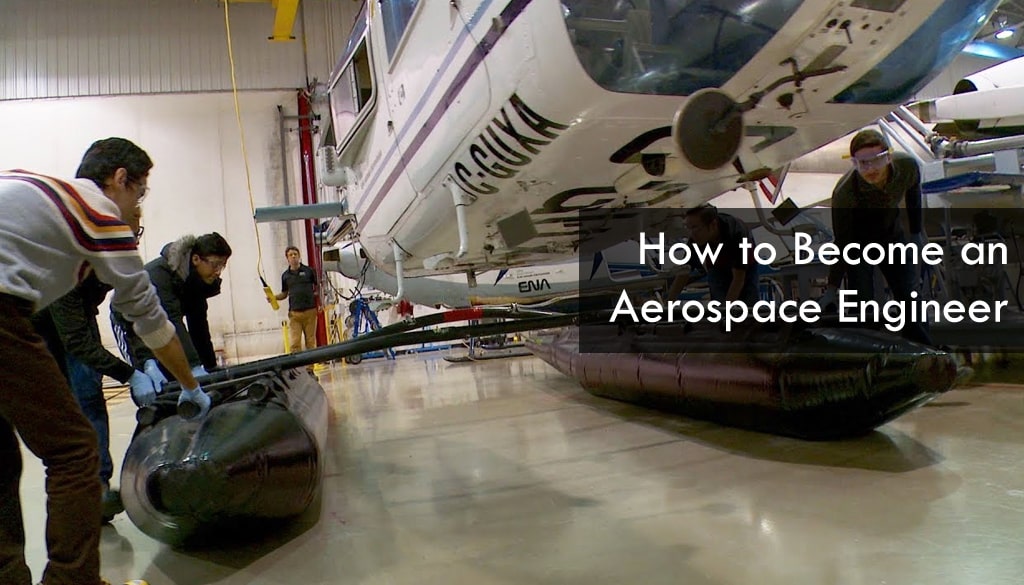
How to Become an Aerospace Engineer
Aerospace Engineering is a branch of engineering that aims at equipping students with relevant skills and knowledge to design and manufacture spacecrafts, aircrafts and other related systems. This technical job requires a high attention to detail and needs professionals with excellent numeracy and IT skills. To become an aerospace engineer, one needs to pursue a B.Tech as a first step and can head to a Master’s in a specialization.
As an aerospace engineer, you would work in the various fields including research, testing and production and maintenance. Skills that are necessary to make a career in aerospace engineering include analytical skills, great communication skills, IT, Numeracy, problem solving and many more. You will gain these skills during your B.Tech in Aeronautical Engineering course.
What are the Required skills to Become an Aerospace Engineer?
- Strong analytical and problem-solving skills
- Creative and ability to see alternative ways of things
- Communication skills
- Speed and accuracy
- Strong mathematics and Mechanics
- Technical Expertise
- Concern about safety
- Interested in aviation and science
- Sense of Responsibility
- Work under pressure to meet the deadlines
Eligibility to Become an Aerospace Engineer
- For admission in Bachelor’s degree in Aerospace Engineering, basic eligibility criteria is PCM in Class 12.
- For admission in top engineering colleges of India, one must obtain a good rank in JEE mains and JEE advanced.
- For getting a license in Aircraft maintenance engineering, clearing exams under DGCA is important.
- For a Master’s degree in Aerospace, one can join the top institutions like IIT after clearing the GATE exam.
List of Courses in Aerospace Engineering
- B.Tech in Aeronautical Engineering
- B.E. Aeronautical Engineering
- B.Tech Aerospace Engineering
- M.Tech in Aeronautical Engineering
During Bachelor’s degree following courses help you to get the basic understanding of the Aeronautical Engineering:
- Strength of Materials
- Fluid Mechanics
- Thermodynamics
- Mathematics
- Mechanics
- Basics of Aeronautical Engineering
After this, you will be introduced to the core courses of the degree. Some of those are
- Aircraft Design
- Aircraft Structures
- Aerodynamics
- Flight Mechanics
- Aircraft Propulsion
- Aircraft Stability and Control
- Gas Dynamics
- Rocket Propulsion
- Aircraft Systems
Role & Responsibilities of an Aerospace Engineer
Aerospace engineers must be able to fulfil the following tasks in order to meet the demand of their role.
- Solving the complex aerospace design and engineering problems.
- Analyse the requirements of the mission profile and build a mathematical model for the same.
- Undertake computer modelling and predict flight characteristics through statistics and computational analysis.
- Design and develop the propulsion systems, control systems for the required model.
- Analyse and test the performance of the aeronautical products to meet the requirements of the mission profile.
- Research and development of new methods to improve efficiency.
- After successful attempts over the prototypes, plan and coordinate for the manufacturing of the final product.
- Find out the new technologies for the application of aerospace.
- Aeronautical Engineers are involved in various designing, analysis and manufacturing techniques of overall aircraft structures.
- To analyze the aircraft aerodynamics parameters and its performance.
- Estimation and investigation for the safety of aircraft components.
- Inspection and repair of defective products and component and identify the source problem and get the possible corrective action or solutions
Tips to Become a Successful Aerospace Engineer
Aeronautical / Aerospace engineering is very interesting and a different course than the other ones. So if you want to become a good aerospace engineer, then please keep in mind the following points:
- You must be passionate about it without any second thoughts.
- Work on analytical and mathematical skills.
- Think differently and something new.
- Always try to participate in the competitions.
- Work on current technologies/software which are used in industries/research areas.
- Get maximum hands-on experience during the course by internships/seminars.
- Get the bachelor’s degree with a good CGPA plus knowledge



